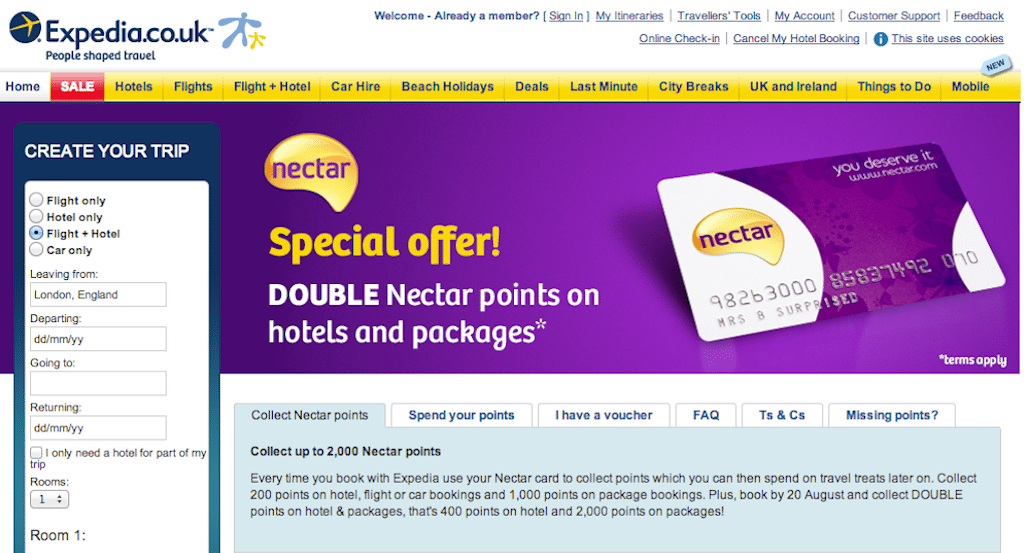Skift Take
This agreement between InterContinental Hotels, and Expedia and Booking.com is game-changing not for its short-term impact, but for the more far-reaching reverberations, and new regulatory actions that it will ultimately lead to.
The UK’s Office of Fair Trading entered into a landmark hotel-rate agreement, subject to final approval, with InterContinental Hotels Group, Booking.com and Expedia that would apply to all online travel agencies and hotels servicing UK travelers through the European Union. The full PDF of the ruling, embedded at the end of the story.
What is the agreement?
Instead of the current practice where online travel agencies are prohibited from offering rooms at rates lower than the pricing on hotels’ own websites, OTAs under the 3-year pact would now be able to offer UK travelers, who are members of their loyalty programs or other “closed groups,” vouchers, rewards, cash back and other discounts off the rate on the hotel website.
The OTAs would fund these discounts from their hotel commissions and margins, and the OFT believes this would finally inject some price competition, where it has been sorely lacking.
What are the Implications of the Agreement?
Limited Competition
1. The agreement would indeed spark some price competition, but in a limited way, and behind closed doors. OTAs would not be permitted to openly offer an IHG or Marriott room on the OTAs’ websites for $90 when it goes for $100 on the hotels’ websites, but the OTAs would be able to promote the discount privately to loyalty program members.
Can’t Show Actual Rate
2. When Expedia, Travelocity, Booking.com, Orbitz or other booking sites advertise on metasearch sites such as Kayak, TripAdvisor or Trivago, they can promote the fact that they are offering discounted room rates to members of their loyalty programs, but they can’t explicity display the rate or percentage discount.
Expansion Beyond Loyalty Programs
3. The OTAs could offer these discounts to members of other closed groups that they may form in the future, not just to loyalty program members. For example, members of a Priceline Dreamliner Lovers Club or a Travelocity Roaming Gnome Fan Club could conceivably get the discounts, too.
Who’s In, Who’s Out
4. The agreement applies to all OTAs and hotels in the European Union for UK travelers who are members of OTA loyalty programs and have previously booked a room on their websites. So this is not merely about IHG, Expedia and Booking.com.
Rate Parity Gets Loosened
5. The real news is that the agreement, with public comment period running through September 13, would mean that the OTAs and hotels would have to open up and amend their existing agreements, and this opens the way for less restrictive provisions, increased competition, broadening the geographies where this applies, and the first withering of rate-parity restrictions since they were created more than a decade ago.
Europe Now, the World Awaits
6. It isn’t hard to imagine that when these global OTAs and hotels sit down to rewrite their existing agreements that regulatory authorities would eventually prod them to extend the provisions to other travelers throughout the world, including Europe and the U.S., where there is opposition and even lawsuits over the hotel-pricing issue.
Backroom Deal, and More Changes Could Come
7. The OFT agreement with IHG, Booking.com and Expedia could be changed and broadened before it becomes final as public comments roll in. Dorian Harris, the founder of UK-based skoosh.com, the complainant that sparked the OFT investigation, issued a statement and tells Skift that he wasn’t consulted at all about the agreement. Harris argues that rate parity never applied to closed groups anyway, that the three parties like rate parity and won’t upset the applecart because they want to be able to offer best price-guarantees and not get undercut, and thus the agreement doesn’t do anything to enhance competition.
What it Means for Travelers
8. For the traveler, if you aren’t a UK resident or don’t have a UK credit card, and aren’t staying at a hotel in the European Union, the agreement wouldn’t mean much to you for now because it wouldn’t apply to you. However, it opens a door that has been shut tight for a decade, with much broader reforms on the agenda in the future.
Wall Street Isn’t Worried
9. Priceline states in a financial filing that the agreement would end an OFT investigation of its practices, and there would be no admission of wrongdoing. The limitations of the agreement are readily apparent. Wall Street doesn’t see it as impacting the global hotel business of Priceline’s Booking.com: Priceline’s stock is rallying and opened just below $1,000 per share today, based on upbeat second quarter earnings. In addition, IHG spokesperson Catherine Dolton says the agreement is “clearly defined,” although it would apply to the chain’s agreements with all OTAs handling UK travelers in the European Union.
OTAs Versus Hotel Loyalty Programs
10. Smart OTAs would market the hell out of this agreement, which could do much to enhance loyalty and bulk up these programs. In fact, hotel consultant Robert Cole says “the real war will be between the OTA and major hotel brand frequent guest programs,” with the OTAs taking additional market share and hurting hotels’ revenue per available room.
DOJ or FTC Could Take Action
11. Look for U.S. regulatory authorities, which haven’t explicitly launched an investigation of hotel-pricing practices but are obviously monitoring developments, to get into the act in a much bigger way. Although U.S. and UK laws are different, you can take it to the bank that these types of changes will not ultimately be restricted to Europe, and will become much more far-reaching.
Have a confidential tip for Skift? Get in touch
Tags: antitrust, booking.com, intercontinental hotel group
Photo credit: UK members of Expedia's loyalty program would get the Nectar of hotel discounts under a new arrangement between online travel agencies and major hotel chains in Europe. Expedia
